High blood pressure, or hypertension, is a common health condition that affects millions globally. Characterized by the persistent elevation of blood pressure in the arteries, it can lead to severe health complications if not managed effectively. Lifestyle modifications, including dietary changes, play a crucial role in controlling and reducing high blood pressure. Identifying and avoiding certain foods that can exacerbate this condition is essential. This article will delve into specific foods that are best avoided and provide alternatives to support those aiming to manage high blood pressure effectively.
Contents
Deli Meat
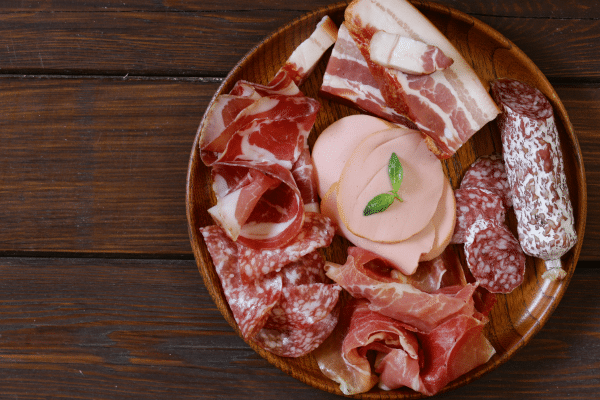
Deli meats, a convenient and popular choice for sandwiches and quick meals, often contain high levels of sodium. This mineral, when consumed in excess, can lead to an increase in blood pressure as it causes the body to retain fluid, resulting in an added burden on the heart. Moreover, the processing methods employed in creating these products often involve the use of preservatives and additives which can also impact overall heart health.
There are numerous healthier alternatives to traditional deli meats. Opting for low-sodium versions or selecting natural, unprocessed proteins like grilled chicken or turkey can be beneficial. It’s essential to read labels carefully, considering not only the sodium content but also the overall nutritional profile to make informed choices that support cardiovascular health.
Canned Soups
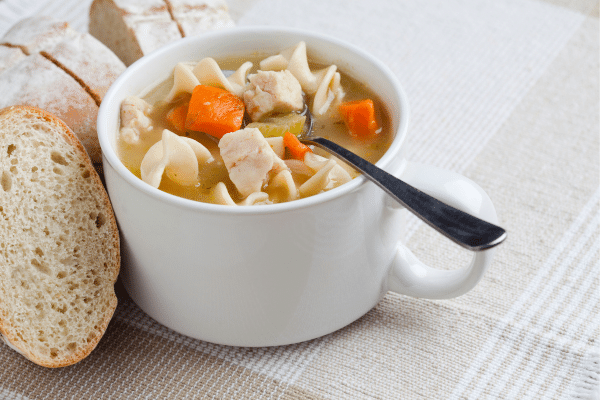
Many people turn to canned soups for their convenience and long shelf life. However, they can also be a hidden source of excessive sodium. The preservation process necessitates the use of salt to enhance flavor and extend the product’s lifespan. Those with high blood pressure should be wary of this as excessive salt intake can exacerbate their condition, making management and control more challenging.
However, not all hope is lost for soup lovers. A shift towards homemade soups allows for complete control over the ingredients, ensuring that sodium levels are kept in check. Additionally, numerous brands offer low-sodium or reduced-salt options for those looking to enjoy this warm, comforting dish without negatively impacting their blood pressure. Always checking the nutritional information on the packaging can guide healthier choices.
Sugar-Sweetened Beverages
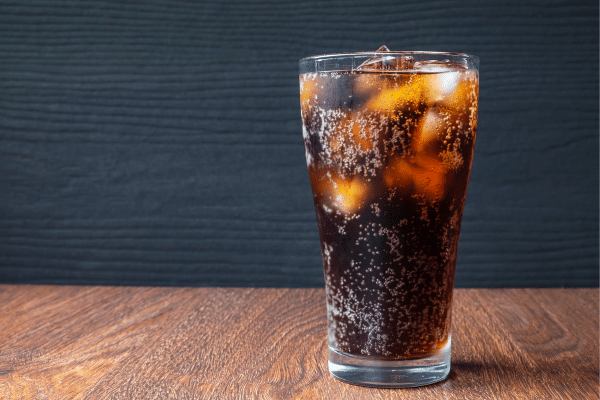
A significant amount of sugar is often hidden in sweetened beverages, such as sodas, fruit drinks, and specialty coffees. Excessive sugar intake is linked to weight gain and increased heart rate and blood pressure. These drinks can rapidly escalate the daily intake of sugar, leading to an increased risk of hypertension and related health conditions, including heart disease and diabetes.
Opting for healthier alternatives is a practical step toward better health. Water remains the best choice for staying hydrated without adding extra calories or sugar to the diet. Herbal teas and infused waters with natural fruits can offer flavor variety while maintaining the benefits of low sugar and calorie content. Being mindful of beverage choices can play a pivotal role in managing high blood pressure.
Alcohol

While moderate alcohol consumption can have certain health benefits, excessive intake can lead to a rise in blood pressure. Alcohol can interfere with the effectiveness of blood pressure medications, making it a challenge to manage the condition. It’s essential for individuals with hypertension to be mindful of their alcohol consumption to prevent exacerbating their condition.
Moderation is key when it comes to alcohol. Limiting intake and choosing drinks with lower alcohol content can mitigate the impact on blood pressure. Additionally, alternating alcoholic drinks with water or other non-alcoholic beverages can help to moderate consumption while staying hydrated.
Processed Grains
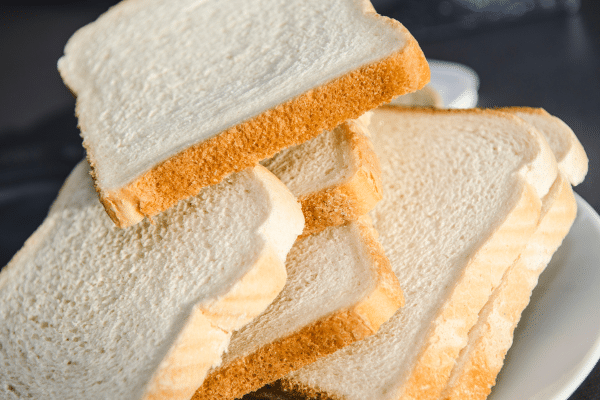
Processed grains are often stripped of their fiber and essential nutrients during refinement, leading to a product that can adversely affect blood sugar and insulin levels. The lack of dietary fiber means these grains can cause a rapid increase in blood sugar levels, leading to an increase in blood pressure. Processed grains are typically found in white bread, pasta, and various snacks.
Incorporating whole grains into the diet can have a positive effect on blood pressure. Foods like brown rice, quinoa, barley, and whole wheat products contain more fiber and nutrients, promoting better digestion and metabolic health. Making a conscious effort to choose whole grain options can contribute significantly to a diet that supports the management of high blood pressure.
Fried Foods
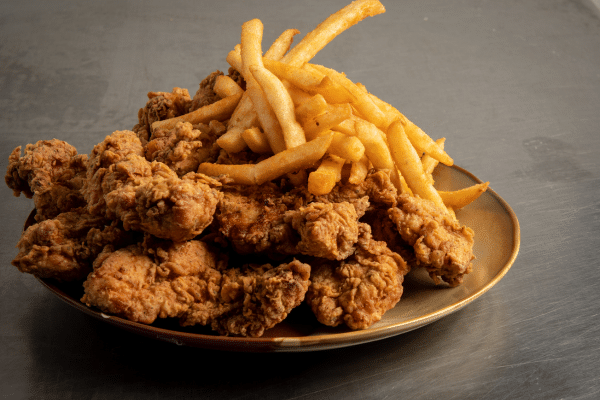
Fried foods are notoriously high in unhealthy fats and sodium, both of which can exacerbate high blood pressure. Items like french fries, fried chicken, and other fast-food staples are often cooked in hydrogenated oils, rich in trans fats. These unhealthy fats can lead to weight gain, increased bad cholesterol levels, and elevated blood pressure, impacting overall cardiovascular health.
Choosing cooking methods such as grilling, baking, or steaming can mitigate these adverse effects. These methods do not require the excessive use of oils and help in retaining the nutritional value of the food. Consuming foods prepared using these techniques can contribute to a balanced diet and aid in managing blood pressure levels effectively.
Pickled Foods
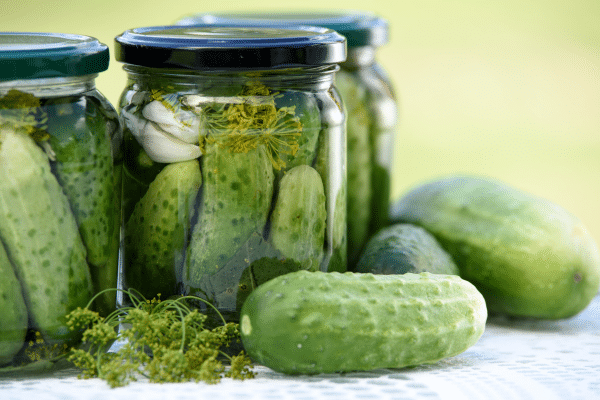
Pickled foods, including pickles, olives, and certain types of relishes, often contain a high sodium content due to the preservation process. While they can be a tasty addition to a variety of dishes, the salt content can be a concern for individuals with high blood pressure. Excessive sodium intake causes the body to retain water, increasing the volume of blood in your arteries and leading to higher blood pressure.
Fortunately, fresh alternatives abound. Incorporating a variety of fresh vegetables into the diet not only reduces sodium intake but also provides essential nutrients and antioxidants. By making a conscious choice to limit the consumption of pickled items and focus on fresh produce, individuals with high blood pressure can take a positive step toward managing their condition.
The Bottom Line
Navigating dietary choices is crucial for individuals with high blood pressure. Avoiding foods high in sodium, unhealthy fats, and sugar while embracing a diet rich in fresh, whole foods can significantly impact blood pressure management. It’s about making informed choices, reading labels, and being mindful of the preparation methods. By adopting a balanced approach to eating, individuals with hypertension can effectively manage their condition, promoting overall well-being and reducing the risk of associated health complications. Every small, positive change in diet contributes to a journey towards better health.


